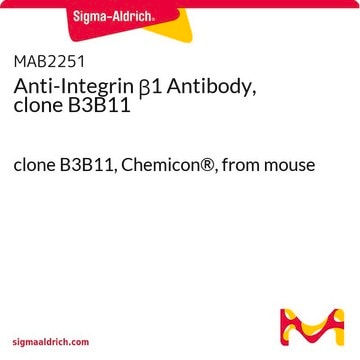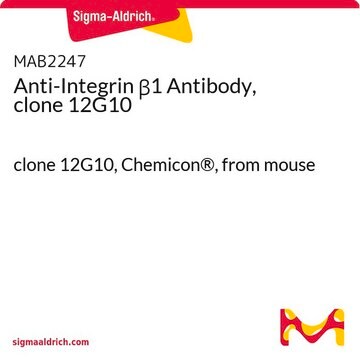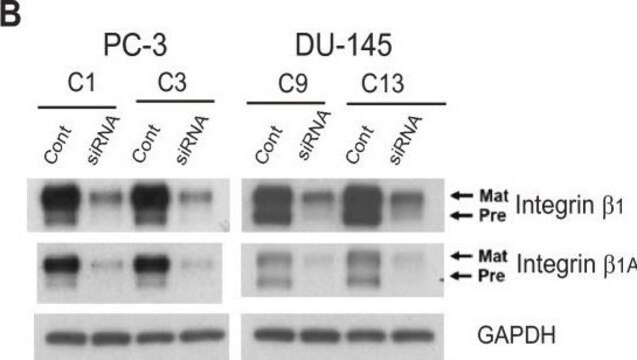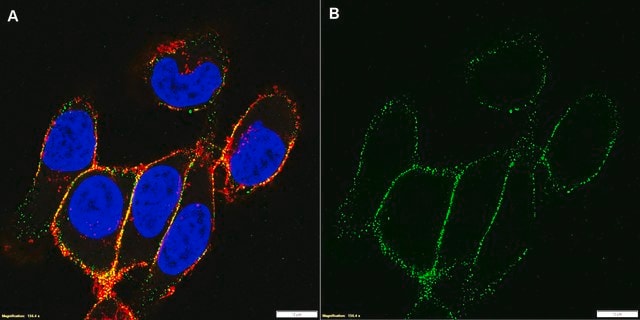MAB2250
Anti-Integrin β1 Antibody, clone 21C8
clone 21C8, Chemicon®, from mouse
Synonym(s):
CD29
About This Item
Recommended Products
biological source
mouse
Quality Level
antibody form
purified immunoglobulin
antibody product type
primary antibodies
clone
21C8, monoclonal
species reactivity
human
manufacturer/tradename
Chemicon®
technique(s)
flow cytometry: suitable
immunohistochemistry: suitable
immunoprecipitation (IP): suitable
isotype
IgG1
NCBI accession no.
UniProt accession no.
shipped in
wet ice
target post-translational modification
unmodified
Gene Information
human ... ITGB1(3688)
Specificity
Immunogen
Application
Immunohistochemistry on frozen sections
Flow cytometry
Stimulates adhesion of cells to extracellular matrix proteins (Wilkins et al., 1996)
Does not bind reduced beta1 integrin on Western blot
Optimal working dilutions must be determined by end user.
Cell Structure
Integrins
Physical form
Storage and Stability
Other Notes
Legal Information
Disclaimer
Not finding the right product?
Try our Product Selector Tool.
Storage Class Code
10 - Combustible liquids
WGK
WGK 2
Flash Point(F)
Not applicable
Flash Point(C)
Not applicable
Certificates of Analysis (COA)
Search for Certificates of Analysis (COA) by entering the products Lot/Batch Number. Lot and Batch Numbers can be found on a product’s label following the words ‘Lot’ or ‘Batch’.
Already Own This Product?
Find documentation for the products that you have recently purchased in the Document Library.
Our team of scientists has experience in all areas of research including Life Science, Material Science, Chemical Synthesis, Chromatography, Analytical and many others.
Contact Technical Service








